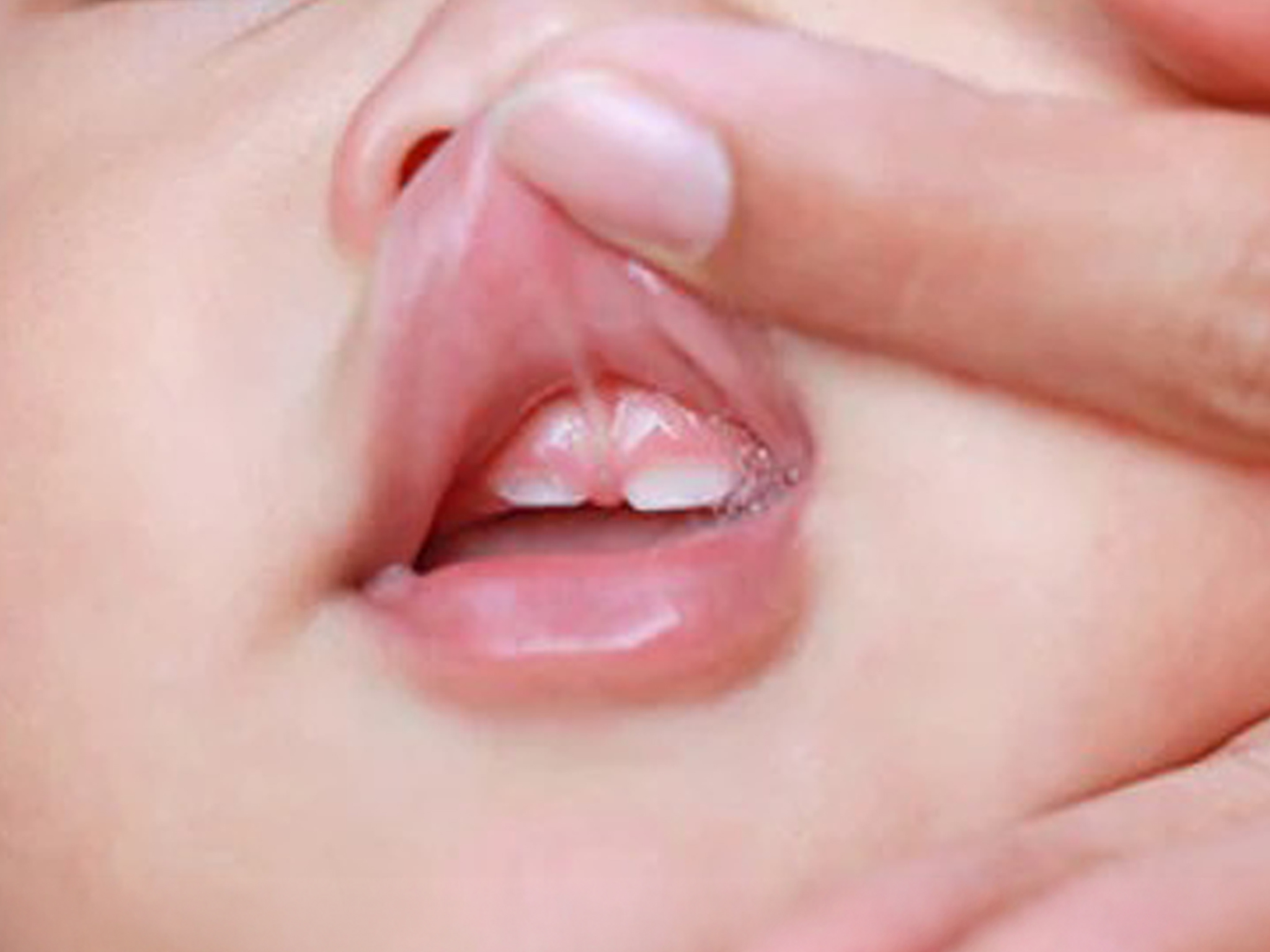
Pediatric Dentist in Managing Lip Tie in Newborns
Lip tie in newborns is a condition that, while not often widely discussed, can significantly impact an infant’s feeding, oral development, and overall comfort. At Dr. Kammath’s Pediatric Dental Clinic in Trivandrum, understanding and managing lip tie is a vital part of providing comprehensive care. For infants (newborn to infants under 3 years), we do tongue tie and lip tie release under Oral Sedation. For children of 4 years and above, minor surgical procedures can be done under Conscious Sedation (Happy Gas Therapy). This blog explains the role of pediatric dentistry in identifying, diagnosing, and treating lip tie, supporting healthier starts for infants and peace of mind for parents.
What Is Lip Tie and How Does It Affect Newborns?
Lip tie happens when the tissue connecting the upper lip to the gums, known as the labial frenulum, is abnormally tight or thick, limiting the natural movement of the lip. In newborns, this restriction can make it difficult for the baby to latch properly during breastfeeding or bottle feeding, leading to challenges in feeding and weight gain.
In addition to feeding difficulties, a lip tie can lead to other problems such as irritation or soreness for the mother while nursing, challenges in speech development as the child grows, and issues with dental hygiene and oral structure over time. Understanding this condition early allows for timely intervention to mitigate potential complications.
Signs and Symptoms of Lip Tie in Infants
Detecting lip tie can sometimes be challenging because symptoms vary in severity. Common signs parents should watch for include:
- Difficulty achieving a good latch during breastfeeding, causing frustration for both infant and mother.
- Clicking sounds while nursing, which suggest the baby’s lip is not sealing properly around the breast.
- Poor weight gain or prolonged feeding times due to inefficient feeding.
- Recurring gas, colic, or reflux symptoms that may be caused by swallowing air while feeding.A very tight upper lip that seems unable to flare or lift away from the gums.
- Visible tension or blanching of the tissue above the upper front teeth when the lip is lifted.
- In the mother, nipple pain, cracking, or soreness from inadequate latch.
If parents notice these symptoms, consulting a pediatric dentist experienced in identifying and managing lip tie is essential to confirm diagnosis and plan treatment.
How Pediatric Dentists Diagnose Lip Tie
At Dr. Kammath’s Pediatric Dental Clinic, diagnosis begins with a careful oral examination. The pediatric dentist will look at the frenulum’s size, thickness, and attachment point on the gum. A lip tie is typically classified into different grades depending on how far the frenulum extends toward the upper front teeth and how much it restricts lip movement.
The dentist may also assess feeding behaviour, observe how the baby’s lips and mouth function during nursing or bottle feeding, and discuss any feeding issues reported by the parents. Sometimes, collaboration with lactation consultants or pediatricians is necessary to get a full picture of the feeding and oral function challenges faced.
How Lip Tie Affects Oral Development in Infants
Unchecked lip tie can have effects beyond infancy that impact a child’s oral health and development. Some consequences include:
- Misalignment of teeth and spacing problems due to constant tension on the gums.
- Development of a gap between the upper front teeth (diastema).
- Challenges with maintaining oral hygiene, since limited lip movement can reduce the ability to remove food particles effectively.
- Potential speech delays or articulation issues in some children if the lip mobility restriction persists.
- Challenges with chewing or biting as the child grows older.
Early identification and management by a pediatric dentist ensure that the child’s oral structure develops normally, preventing avoidable complications.
What to Expect During and After Lip Tie Treatment
Treatment for lip tie usually involves a simple surgical procedure called a frenectomy or frenulotomy, where the restrictive frenulum is gently released to free lip movement. At Dr. Kammath’s Clinic, this procedure is performed with specialized soft tissue lasers to ensure safety and comfort.
The procedure is quick, minimally invasive, and often done in the clinic under oral sedation and local anaesthesia. For newborns, local anaesthetics or topical numbing agents are applied, and the baby is typically able to breastfeed soon afterward, which also helps soothe the area.
After treatment, parents can expect:
- An immediate improvement in lip mobility and feeding efficiency.
- Some mild swelling or tenderness for a day or two, which can be managed with routine care.
- Guidance from the pediatric dentist on post-procedure care, including hygiene and exercises to prevent the frenulum from reattaching.
- Subsequent appointments to assess the healing progress and confirm improvements in feeding.
In many cases, timely treatment leads to lasting benefits in feeding success and oral development without the need for further intervention.
At Dr. Kammath’s Pediatric Dental Clinic, we emphasize compassionate, expert care tailored to the unique needs of each child. Families in Trivandrum can rely on us for early detection, accurate diagnosis, and effective management of lip tie in newborns, ensuring their children have the best start in life.
If you think your newborn might have a lip tie or are experiencing feeding difficulties, please feel free to reach out to us for a consultation. We are devoted to delivering exceptional pediatric dental care tailored to your family’s needs.


